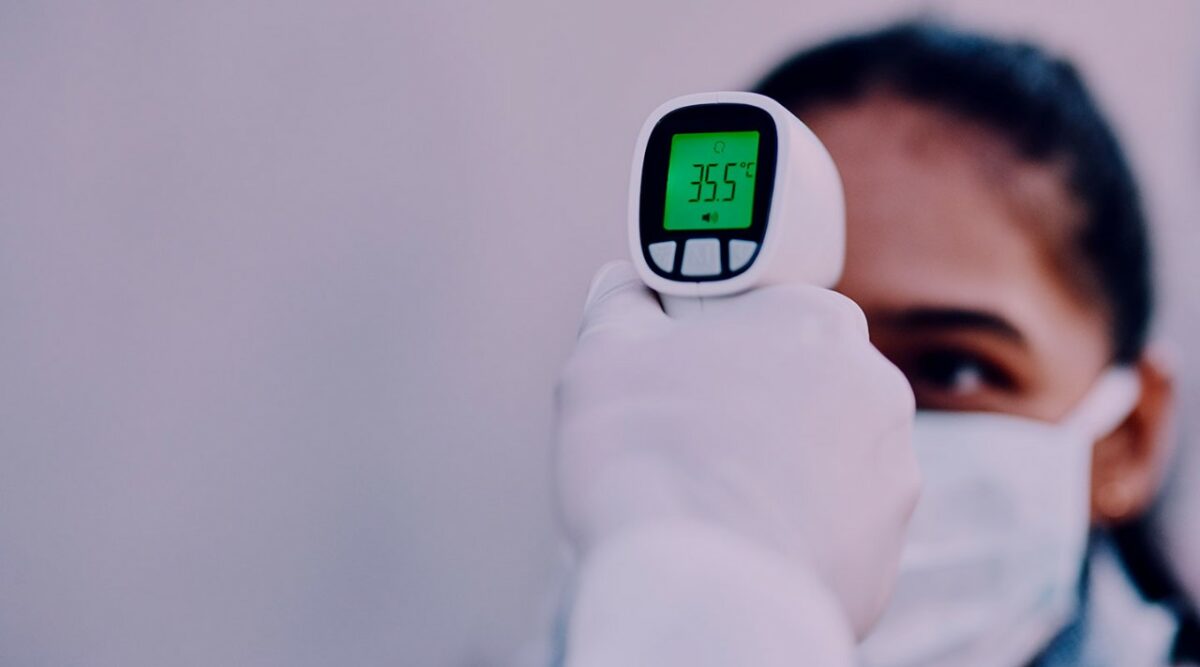15 August 2021
By Dr Lesego Rametsi, Group Head Of Health & Wellness
All doctors can vividly remember two moments in their careers: the first baby they delivered and their first patient that died. I am starting to believe that all of us living through this pandemic will add COVID-19 to their notable and most memorable career moments.
At the beginning of March, who could have imagined the way we are living and working now? Who would have imagined we would be homeschooling our children and that businesses, shopping malls and restaurants would completely shut down in an effort to curb the spread of a deadly virus?
As the Group Head of Health and Wellness, I sit on Absa’s multi-disciplinary task team that is coordinating our organisation’s response to this pandemic. As we work, I have been reflecting on my responsibility to my colleagues during this time, not only as a medical doctor, but as a fellow colleague who recognises my service to the greater society.
In African cultures, community is an integral part of our existence and the people around us are essential to our concept of ourselves. In a public health context, this is also true. Touch provides reassurance and comfort to a sick person that they are not alone; we remain connected and able to provide care.
The COVID-19 outbreak has done more than threaten and affect our health. It has disrupted our lifestyles, put strain on our mental health and personal relationships, wreaked havoc on economies and set the course for a new way of living and working.
It has been months since it was first reported, and there is a lot that we still need to learn about COVID-19. We know that people can easily catch the virus from an infected person and that about one in five people who catch the virus require hospital care. We also know that in the absence of a vaccine, our biggest priority right now is to save lives by slowing the spread of COVID-19, to avoid overwhelming clinics and hospitals with too many patients. At present, the most effective way to prevent infection is through social distancing and the return of concepts familiar from our childhoods.
Who among us didn’t have older relatives who constantly reminded you to wash your hands when you came inside or prepared to eat? Or to cover your mouth when coughing, or stop touching your noses, or rubbing your eyes with dirty hands? Similarly, I cannot remember a time when I was not made aware of the need to care for others as well as myself. The vast majority of us that remain healthy are extraordinarily thankful for our good health right now. We also acknowledge how much our health depends on the health and wellbeing of our families and communities and we have to do whatever is required to not get infected or spread the infection.
But what exactly does this mean?
By the time you read this, many countries would either be under lockdown or emerging from a lockdown with restricted social movement.
For many of us, this period has indicated a frightening loss of power. In these uncertain times, it’s important to focus on what we know and can control. This means avoiding the spread of misinformation or fake news, relying on credible medical and healthcare sources for information and adjusting our behaviour to protect ourselves and others.
We cannot stop COVID-19 immediately – all we can do is try to slow it down and see this play out. Globally, there is an urgent effort being made to avoid the devastating scale of infections and fatalities through the observance of social distancing and enhanced hygiene protocols, and to find a vaccine. While individual actions matter, we have to take collective action to contain the disease. Every one of us, wherever we live and work, whatever we earn and believe, must act to stop this virus and influence those within our social circles to do the same.
My hope is that beyond the immediate crisis, we will reflect more deeply on the importance of good health, wellness, sustainable living, and showing care and compassion for one another. In addition, I hope that we learn to be proactive in preventing infection rather than curing disease. We need to guard our bodies and our minds: eat well, rest and look after our physical and mental health. Lean on your families and friends. We will need exceptional resilience during this time, as we re-learn how to engage and adjust to our new way of living.
Even pandemics pass. Let’s continue with acts of service, care and compassion to one another. Let’s use the time available to minimise the effects and care for ourselves and one another in every way possible. One day, we may look back on this crisis as the catalyst for a stronger focus on health and wellness and sustainable living.
Until then, ask yourself: am I doing enough to flatten this curve and limit the possibility of infection? Am I playing my part? I hope so.
Stay safe. Stay informed. Stay home.
.png)
.png)
.png)
.png)
.png)
.png)
.png)

.png)
.png)



